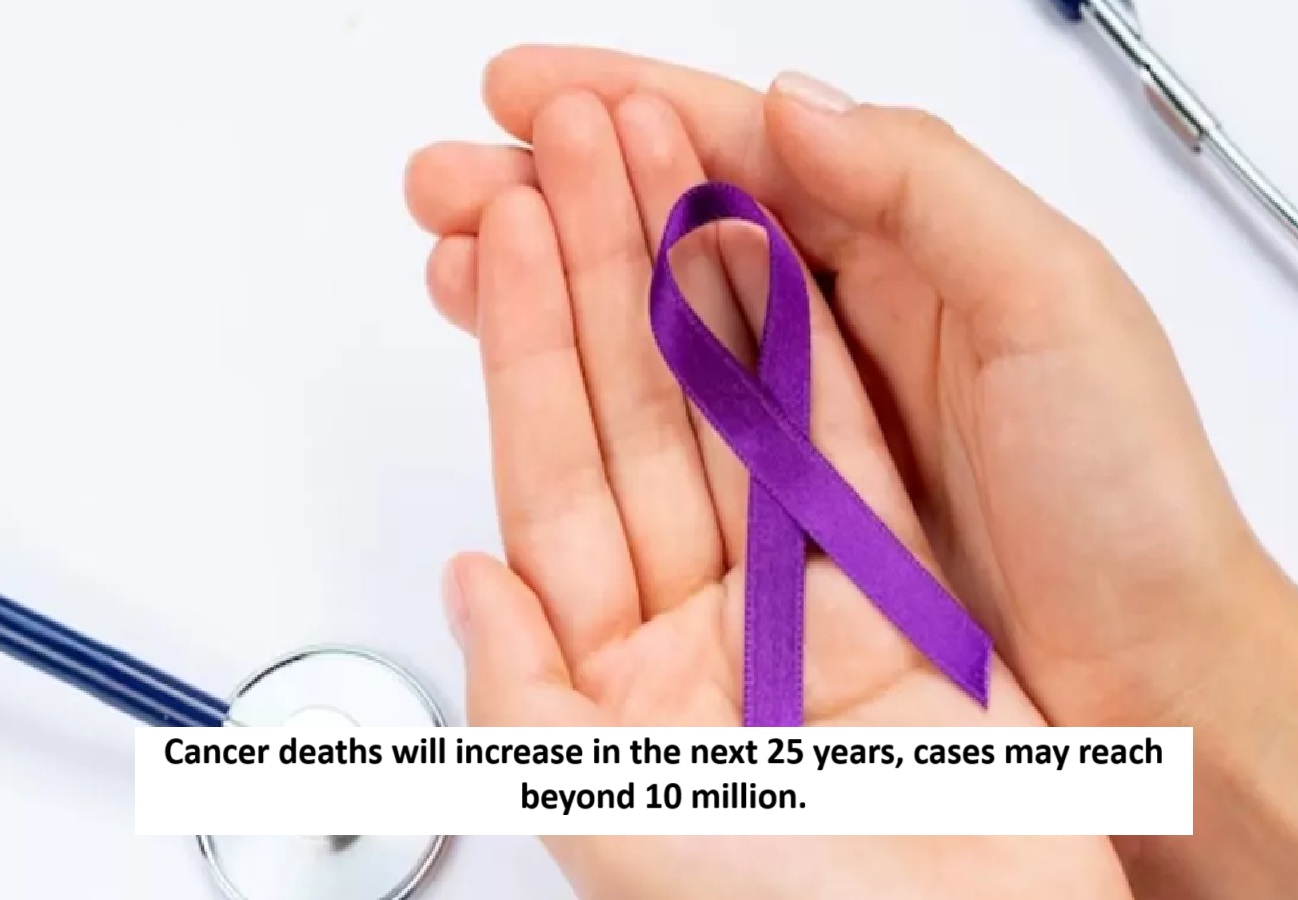
News Topical, Digital Desk : Annual cancer deaths are projected to rise by nearly 75 percent to 18.6 million over the next 25 years, with economic growth and an ageing population the main reasons, according to a global study. The study, published in The Lancet, is projected to increase new cancer cases by 61 percent to 35 million by 2050.
The researchers also estimated that cancer deaths have increased by 74 percent since 1990, reaching 10.4 million. The number of new cancer cases is projected to double to more than 18.5 million by 2023, with most affected people in low- and middle-income countries.
India saw a 26.4 percent increase in cancer rates between 1990 and 2023, the highest in the world. Meanwhile, China saw a 18.5 percent decrease in cancer rates. The team reported that more than 40 percent of cancer deaths worldwide are linked to 44 addressable risk factors, such as tobacco use, unhealthy diet, and high blood sugar, providing an opportunity for prevention.
Analysis of data from 204 countries and territories
"Despite the clear need for action, cancer control policies and implementation have not been prioritized in global health, and in many places, there is insufficient funding to address this challenge," said Dr. Lisa Fors, lead author of the study and from the Institute for Health Metrics and Evaluation (IHME) at the University of Washington. The GBD study analyzes data from 204 countries and territories to understand trends and patterns in disease and to measure health losses and risks across space and time.
Cancer cases may increase in the coming decades
The researchers also reported that the overall mortality rate worldwide decreased by 24 percent between 1990 and 2023. However, disparities in the rate of reduction were observed between high- and low-income countries. The rates of new cases were highest in low-income (24 percent increase) and lower-middle-income countries (29 percent increase), highlighting the disproportionate increase in areas with fewer resources. Cancer remains a significant contributor to the global burden of disease, and the study shows that cancer incidence is expected to increase significantly in the coming decades, particularly in countries with limited resources.
--Advertisement--

 Share
Share



